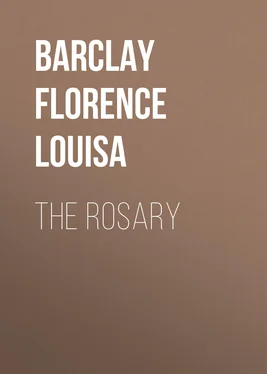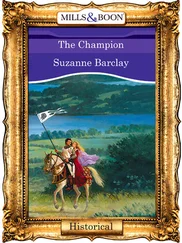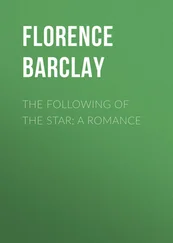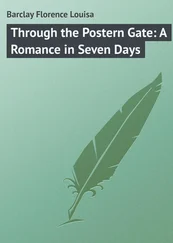Florence Barclay - The Rosary
Здесь есть возможность читать онлайн «Florence Barclay - The Rosary» — ознакомительный отрывок электронной книги совершенно бесплатно, а после прочтения отрывка купить полную версию. В некоторых случаях можно слушать аудио, скачать через торрент в формате fb2 и присутствует краткое содержание. Жанр: foreign_antique, foreign_prose, Зарубежные любовные романы, на английском языке. Описание произведения, (предисловие) а так же отзывы посетителей доступны на портале библиотеки ЛибКат.
- Название:The Rosary
- Автор:
- Жанр:
- Год:неизвестен
- ISBN:нет данных
- Рейтинг книги:3 / 5. Голосов: 1
-
Избранное:Добавить в избранное
- Отзывы:
-
Ваша оценка:
- 60
- 1
- 2
- 3
- 4
- 5
The Rosary: краткое содержание, описание и аннотация
Предлагаем к чтению аннотацию, описание, краткое содержание или предисловие (зависит от того, что написал сам автор книги «The Rosary»). Если вы не нашли необходимую информацию о книге — напишите в комментариях, мы постараемся отыскать её.
The Rosary — читать онлайн ознакомительный отрывок
Ниже представлен текст книги, разбитый по страницам. Система сохранения места последней прочитанной страницы, позволяет с удобством читать онлайн бесплатно книгу «The Rosary», без необходимости каждый раз заново искать на чём Вы остановились. Поставьте закладку, и сможете в любой момент перейти на страницу, на которой закончили чтение.
Интервал:
Закладка:
"Don't be silly, Dal," said Jane. "You could accompany The Rosary perfectly, if I wanted it done. But, as it happens, I prefer accompanying myself."
"Ah," said Lady Ingleby, sympathetically, "I quite understand that. It would be such a relief all the time to know that if things seemed going wrong, you could stop the other part, and give yourself the note."
The only two real musicians present glanced at each other, and a gleam of amusement passed between them.
"It certainly would be useful, if necessary," said Jane.
" I would 'stop the other part' and 'give you the note,'" said Garth, demurely.
"I am sure you would," said Jane. "You are always so very kind. But I prefer to keep the matter in my own hands."
"You realise the difficulty of making the voice carry in a place of that size unless you can stand and face the audience?" Garth Dalmain spoke anxiously. Jane was a special friend of his, and he had a man's dislike of the idea of his chum failing in anything, publicly.
The same quiet smile dawned in Jane's eyes and passed to her lips as when she had realised that her aunt meant her to volunteer in Velma's place. She glanced around. Most of the party had wandered off in twos and threes, some to the house, others back to the river. She and Dal and Myra were practically alone. Her calm eyes were full of quiet amusement as she steadfastly met the anxious look in Garth's, and answered his question.
"Yes, I know. But the acoustic properties of the room are very perfect, and I have learned to throw my voice. Perhaps you may not know—in fact, how should you know?—but I have had the immense privilege of studying with Madame Marchesi in Paris, and of keeping up to the mark since by an occasional delightful hour with her no less gifted daughter in London. So I ought to know all there is to know about the management of a voice, if I have at all adequately availed myself of such golden opportunities."
These quiet words were Greek to Myra, conveying no more to her mind than if Jane had said: "I have been learning Tonic sol-fa." In fact, not quite so much, seeing that Lady Ingleby had herself once tried to master the Tonic sol-fa system in order to instruct her men and maids in part-singing. It was at a time when she owned a distinctly musical household. The second footman possessed a fine barytone. The butler could "do a little bass," which is to say that, while the other parts soared to higher regions, he could stay on the bottom note if carefully placed there, and told to remain. The head housemaid sang what she called "seconds"; in other words, she followed along, slightly behind the trebles as regarded time, and a major third below them as regarded pitch. The housekeeper, a large, dark person with a fringe on her upper lip, unshaven and unashamed, produced a really remarkable effect by singing the air an octave below the trebles. Unfortunately Lady Ingleby was apt to confuse her with the butler. Myra herself was the first to admit that she had not "much ear"; but it was decidedly trying, at a moment when she dared not remove her eyes from the accompaniment of Good King Wenceslas, to have called out: "Stay where you are, Jenkins!" and then find it was Mrs. Jarvis who had been travelling upwards. But when a new footman, engaged by Lord Ingleby with no reference to his musical gifts, chanced to possess a fine throaty tenor, Myra felt she really had material with which great things might be accomplished, and decided herself to learn the Tonic sol-fa system. She easily mastered mi, re, do, and so, fa, fa, mi, because these represented the opening lines of Three Blind Mice, always a musical landmark to Myra. But when it came to the fugue-like intricacies in the theme of "They all ran after the farmer's wife," Lady Ingleby was lost without the words to cling to, and gave up the Tonic sol-fa system in despair.
So the name of the greatest teacher of singing of this age did not convey much to Myra's mind. But Garth Dalmain sat up.
"I say! No wonder you take it coolly. Why, Velma herself was a pupil of the great madame."
"That is how it happens that I know her rather well," said Jane. "I am here to-day because I was to have played her accompaniment."
"I see," said Garth. "And now you have to do both. 'Land's sake!' as Mrs. Parker Bangs says when you explain who's who at a Marlborough House garden party. But you prefer playing other people's accompaniments, to singing yourself, don't you?"
Jane's slow smile dawned again.
"I prefer singing," she said, "but accompanying is more useful."
"Of course it is," said Garth. "Heaps of people can sing a little, but very few can accompany properly."
"Jane," said Myra, her grey eyes looking out lazily from under their long black lashes, "if you have had singing lessons, and know some songs, why hasn't the duchess turned you on to sing to us before this?"
"For a sad reason," Jane replied. "You know her only son died eight years ago? He was such a handsome, talented fellow. He and I inherited our love of music from our grandfather. My cousin got into a musical set at college, studied with enthusiasm, and wanted to take it up professionally. He had promised, one Christmas vacation, to sing at a charity concert in town, and went out, when only just recovering from influenza, to fulfil this engagement. He had a relapse, double pneumonia set in, and he died in five days from heart failure. My poor aunt was frantic with grief; and since then any mention of my love of music makes her very bitter. I, too, wanted to take it up professionally, but she put her foot down heavily. I scarcely ever venture to sing or play here."
"Why not elsewhere?" asked Garth Dalmain. "We have stayed about at the same houses, and I had not the faintest idea you sang."
"I do not know," said Jane slowly. "But—music means so much to me. It is a sort of holy of holies in the tabernacle of one's inner being. And it is not easy to lift the veil."
"The veil will be lifted to-night," said Myra Ingleby.
"Yes," agreed Jane, smiling a little ruefully, "I suppose it will."
"And we shall pass in," said Garth Dalmain.
CHAPTER V
CONFIDENCES
The shadows silently lengthened on the lawn.
The home-coming rooks circled and cawed around the tall elm trees.
The sun-dial pointed to six o'clock.
Myra Ingleby rose and stood with the slanting rays of the sun full in her eyes, her arms stretched over her head. The artist noted every graceful line of her willowy figure.
"Ah, bah!" she yawned. "It is so perfect out here, and I must go in to my maid. Jane, be advised in time. Do not ever begin facial massage. You become a slave to it, and it takes up hours of your day. Look at me."
They were both looking already. Myra was worth looking at.
"For ordinary dressing purposes, I need not have gone in until seven; and now I must lose this last, perfect hour."
"What happens?" asked Jane. "I know nothing of the process."
"I can't go into details," replied Lady Ingleby, "but you know how sweet I have looked all day? Well, if I did not go to my maid now, I should look less sweet by the end of dinner, and at the close of the evening I should appear ten years older."
"You would always look sweet," said Jane, with frank sincerity; "and why mind looking the age you are?"
"My dear, 'a man is as old as he feels; a woman is as old as she looks,'" quoted Myra.
"I FEEL just seven," said Garth.
"And you LOOK seventeen," laughed Myra.
"And I AM twenty-seven," retorted Garth; "so the duchess should not call me 'a ridiculous child.' And, dear lady, if curtailing this mysterious process is going to make you one whit less lovely to-night, I do beseech you to hasten to your maid, or you will spoil my whole evening. I shall burst into tears at dinner, and the duchess hates scenes, as you very well know!"
Читать дальшеИнтервал:
Закладка:
Похожие книги на «The Rosary»
Представляем Вашему вниманию похожие книги на «The Rosary» списком для выбора. Мы отобрали схожую по названию и смыслу литературу в надежде предоставить читателям больше вариантов отыскать новые, интересные, ещё непрочитанные произведения.
Обсуждение, отзывы о книге «The Rosary» и просто собственные мнения читателей. Оставьте ваши комментарии, напишите, что Вы думаете о произведении, его смысле или главных героях. Укажите что конкретно понравилось, а что нет, и почему Вы так считаете.












